Evidence points to a relationship between third-party brand mentions and visibility on AI search surfaces. The strongest quantitative signal comes from Ahrefs' internal analysis, while documentation from Google and OpenAI explains how AI systems select and attribute citations.
Brand mentions in AI search: Executive Snapshot
- Ahrefs reports a correlation coefficient of ~0.67 between branded web mentions and how often a brand appears in AI Overviews or AI chat citations, based on internal Brand Radar data discussed on its podcast. Methods and sample were not fully disclosed. [S1][S2]
- Google states that AI Overviews synthesize information from multiple sources and include links to "learn more," chosen by quality and helpfulness signals, not only traditional rankings. [S3]
- Independent 2024 SERP research finds AI Overview citations concentrate on a recurring set of domains - Reddit, YouTube, Wikipedia, and major publishers - suggesting that off-site presence on these domains can influence reference likelihood. [S5]
- After the U.S. rollout, AI Overviews appeared on roughly 15% of queries, limiting total addressable exposure versus classic blue links. [S4]
- Ahrefs notes that unlinked mentions and their topical context matter for AI visibility, with a lag for training-data systems versus live retrieval systems. [S1][S2]
Implication: Prioritize targeted PR and placements on domains AI systems frequently cite, and treat brand mentions as a complement to links given the limited coverage of AI Overviews.
Method & Source Notes
This brief synthesizes: (a) Ahrefs' internal dataset claims and qualitative guidance; (b) Google's documentation on AI Overviews and citation behavior; (c) third-party SERP studies on prevalence and source concentration; and (d) OpenAI's guidance on training cutoffs versus live browsing.
- Ahrefs podcast is the primary source for their data: internal analysis correlating branded mentions with AI search citations, reporting correlation ~0.67. Sample, features, timeframe, and measurement definitions were not publicly disclosed. [S1]
- Search Engine Journal summarizes the podcast and restates key numbers and recommendations. Secondary corroboration only. [S2]
- Google Support and Developer docs describe AI Overviews' link selection and synthesis behavior. They do not confirm brand mentions as a ranking factor. [S3]
- BrightEdge research reports AI Overviews prevalence of ~15% of U.S. queries post-rollout; BrightEdge typically analyzes large query sets, but sampling for this figure is not specified here. [S4]
- Authoritas analyzed thousands of queries and identified recurring domains frequently cited in AI Overviews - Reddit, YouTube, Wikipedia, and authoritative vertical publishers. Percentages vary by vertical and query type. [S5]
- OpenAI documents model knowledge cutoffs and "Browsing with Bing," illustrating the difference between training-data answers and live sourcing. [S6]
Key limitations: Ahrefs' correlation is not independently replicated; Google has not confirmed mention-based signals for AI Overviews; and methods differ across Google AO, Bing/Copilot, and OpenAI Browse, limiting generalization.
Findings
Ahrefs' internal testing indicates a strong positive relationship between the volume of branded web mentions and how often a brand is cited by AI Overviews and AI chat systems (Pearson r ~0.67). Correlation does not imply causation, but the size of the reported coefficient suggests a material relationship in their sample. [S1][S2]
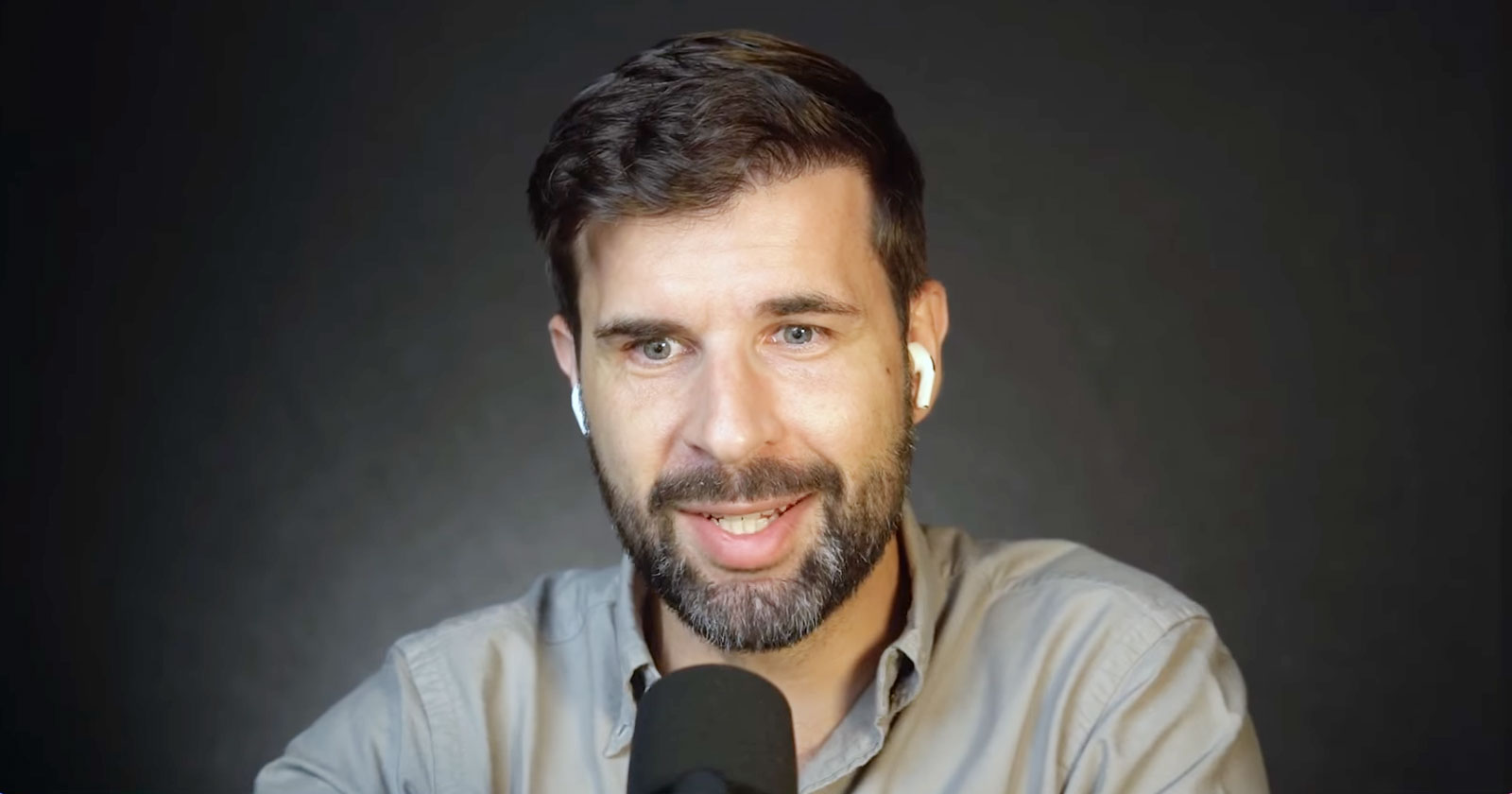
Ahrefs emphasizes that mentions need not be links to be useful. They argue topical context and co-mentions influence how LLMs and retrieval systems understand entities, aligning with entity-centric retrieval and synthesis. This is a directional claim, not a disclosed ranking factor. [S1][S2]
Google's documentation explains that AI Overviews compile information from multiple sources and include links to learn more, selected based on quality, helpfulness, and relevance. Earning coverage on reputable, well-cited pages can therefore improve the odds of being linked or referenced, even if the page is not your own site. Google does not state that brand mentions alone influence link selection. [S3]
Third-party studies in 2024 show AI Overviews often cite a concentrated set of domains - UGC forums such as Reddit and Quora, reference sites like Wikipedia, authoritative vertical publishers, and YouTube. Appearing in these ecosystems increases the surface area for citation, though shares vary by industry and query intent. [S5]
Coverage matters: BrightEdge reported AI Overviews on ~15% of U.S. queries after rollout, down from early SGE tests. Even if mentions correlate with AO inclusion, the ceiling for exposure via AO alone is lower than classic organic search. [S4]
Data freshness differs by system. Training-data-based systems incorporate new web data with a lag, while retrieval-augmented systems cite recent sources. OpenAI confirms knowledge cutoffs for base models and live browsing when enabled; Google indicates AO uses current web results in its synthesis. This split affects how quickly off-site mentions translate into AI citations. [S1][S3][S6]
Ahrefs' tactical guidance: identify domains that AI systems commonly cite for your topics and secure brand mentions there - especially UGC communities, review sites, and YouTube, including transcripts - which frequently appear as citations. Independent studies corroborate that these domains are common in AO citations. [S1][S2][S5]
Interpretation & Implications
- Likely: Off-site coverage on domains frequently cited by AI Overviews raises the probability of being referenced in AI search, because AO selects links based on perceived quality and relevance across the open web, not only a brand's own pages. [S3][S5]
- Likely: Context matters. Mentions alongside relevant topics and credible peers improve entity associations that can aid retrieval and synthesis. [S1]
- Tentative: Unlinked mentions can influence AI understanding and retrieval paths. Treat them as additive to links, not a substitute. [S1]
- Tentative: A consistent YouTube presence with clear transcripts and participation in reputable UGC or forums can expand citation surfaces, with moderation to manage brand risk. [S1][S5]
- Speculative: Sustained mentions in reputable sources may improve a brand's representation in model training corpora over time, aiding recall in AI chats that rely more on training than live retrieval. Timing depends on provider retraining schedules. [S1][S6]
Channel and spend mix: Given AO prevalence of ~15% of queries, prioritize mention-earning for queries where AO appears and where citations can influence qualified demand. Maintain link-earning and on-page quality efforts; treat brand mentions as a complementary off-site objective, not a replacement. [S3][S4]
Contradictions & Gaps
- The ~0.67 correlation is reported by Ahrefs without public method details, sample size, or feature controls. Independent validation is pending. [S1][S2]
- Google does not disclose the weighting of off-site mentions versus links for AO link selection. Any claim of direct causal impact remains unconfirmed. [S3]
- Third-party AO studies quantify citation domains but do not isolate the incremental effect of brand mentions from confounders such as domain authority, link equity, or baseline brand demand. [S5]
- AO prevalence varies by query type and vertical. Broad averages can mislead category-specific planning. [S4]
- Cross-platform differences - Google AO, Bing/Copilot, and ChatGPT Browse - limit generalization. Some rely heavily on live retrieval; others rely on training snapshots. [S3][S6]
Sources
- [S1] Ahrefs Podcast: "How to Win in AI Search (Real Data, No Hype)" - Tim Soulo and Ryan Law discuss internal Brand Radar findings, including a ~0.67 correlation between branded web mentions and AI citations, the importance of topicality, target domains, and training-data lag. 2025.
- [S2] Search Engine Journal: "Ahrefs Data Shows Brand Mentions Boost AI Search Rankings" - summary of the Ahrefs discussion and claims. 2025.
- [S3] Google Support and Developer documentation: "About AI Overviews and web results" - explains AO synthesis and link selection based on quality, helpfulness, and relevance. 2024.
- [S4] BrightEdge Research (Generative Parser): AI Overviews prevalence post U.S. rollout reported at ~15% of queries; longitudinal SERP tracking across large query sets. 2024.
- [S5] Authoritas SGE and AI Overviews studies, 2024 - multi-industry query sets showing frequent citations from Reddit, YouTube, Wikipedia, and authoritative vertical publishers.
- [S6] OpenAI Help Center: model knowledge cutoffs and "Browsing with Bing" behavior that uses live web retrieval versus static training data. 2023-2024.

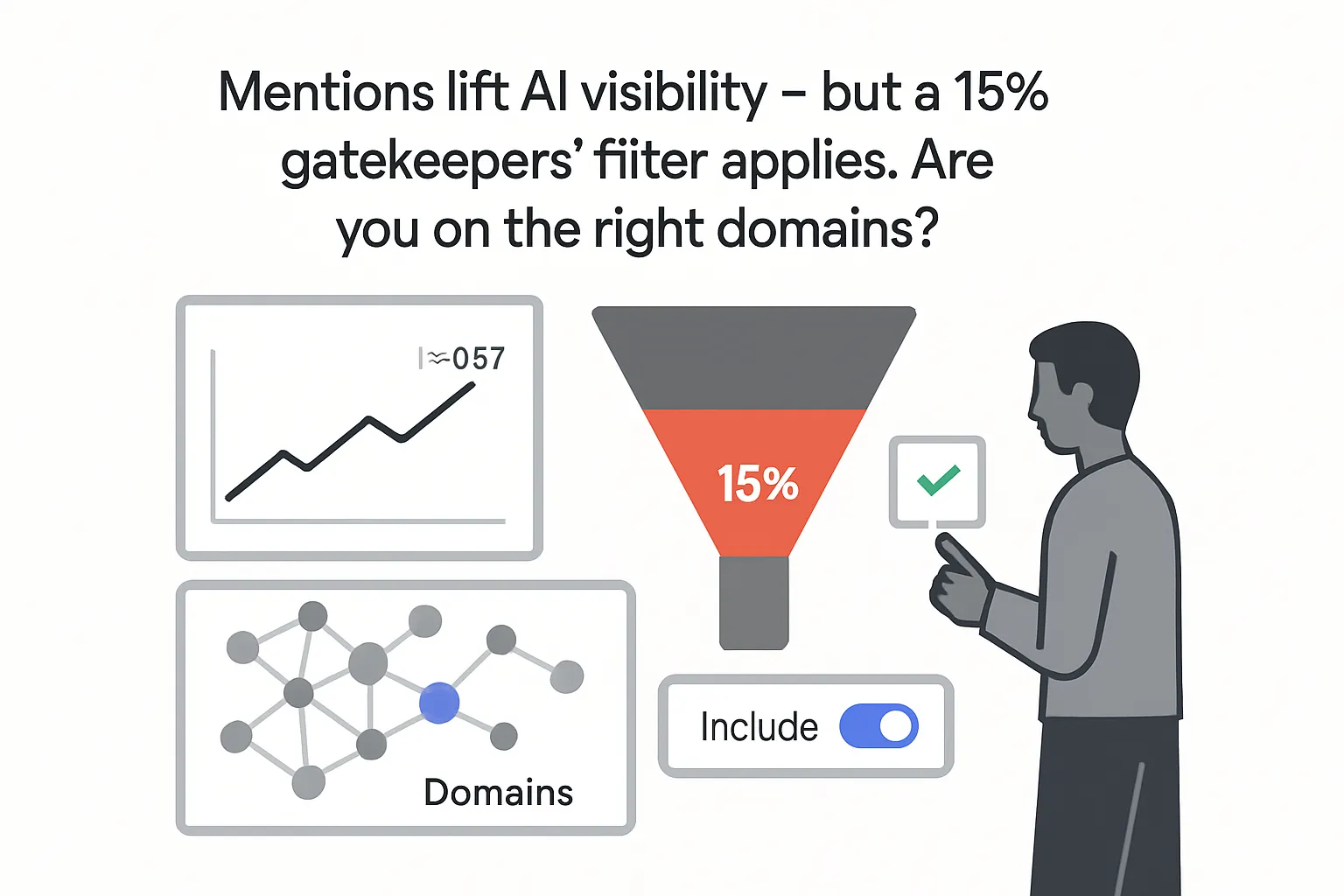


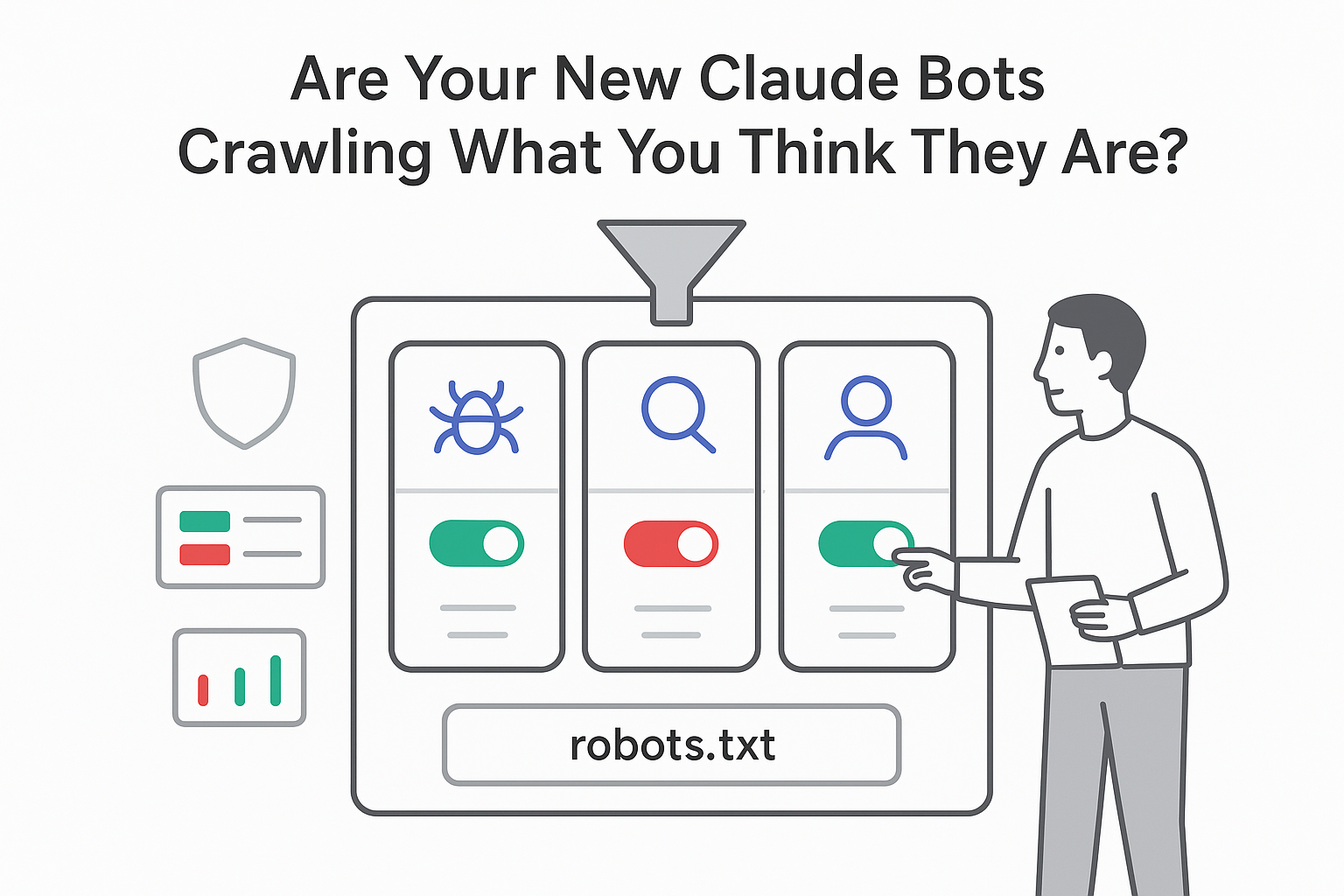
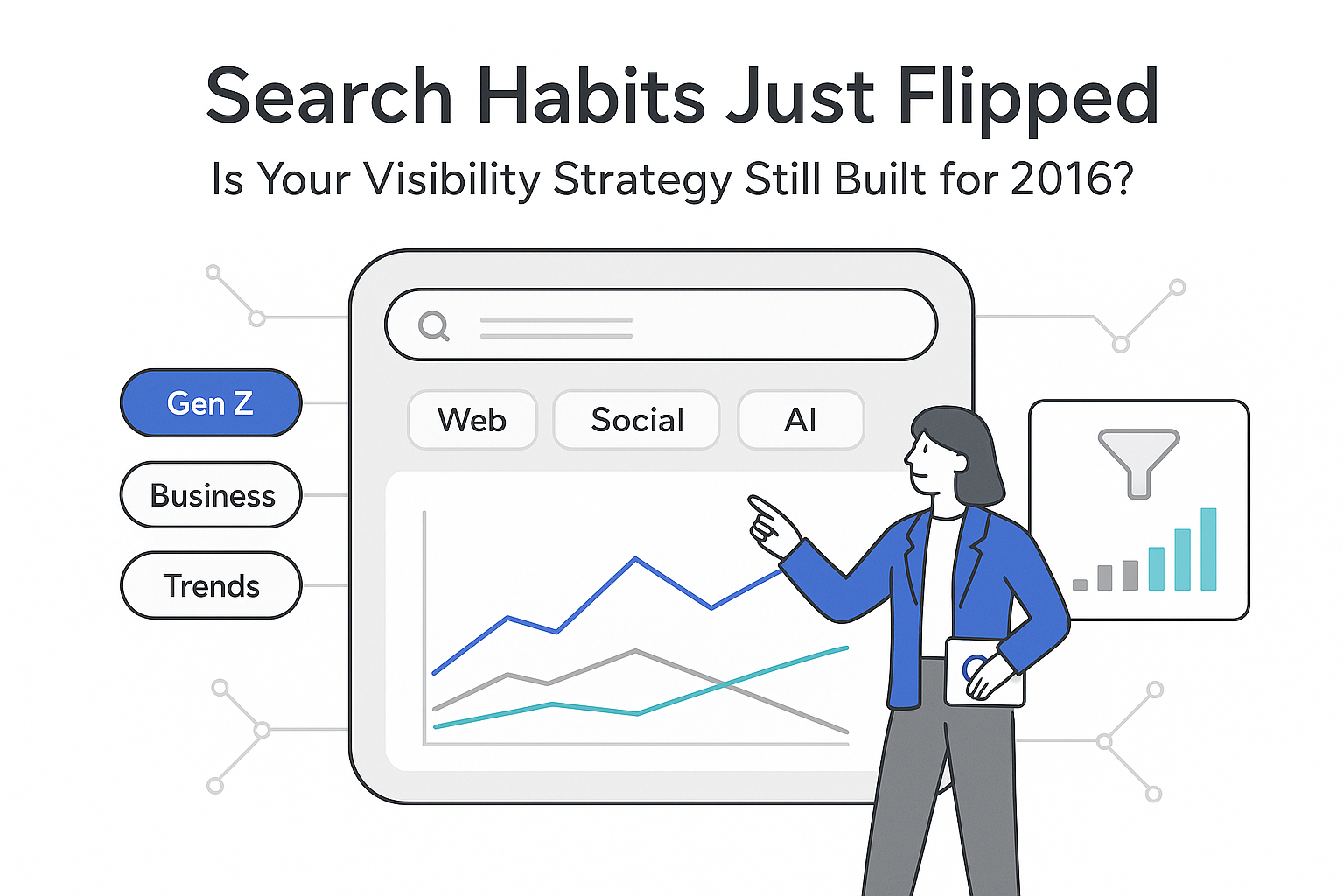
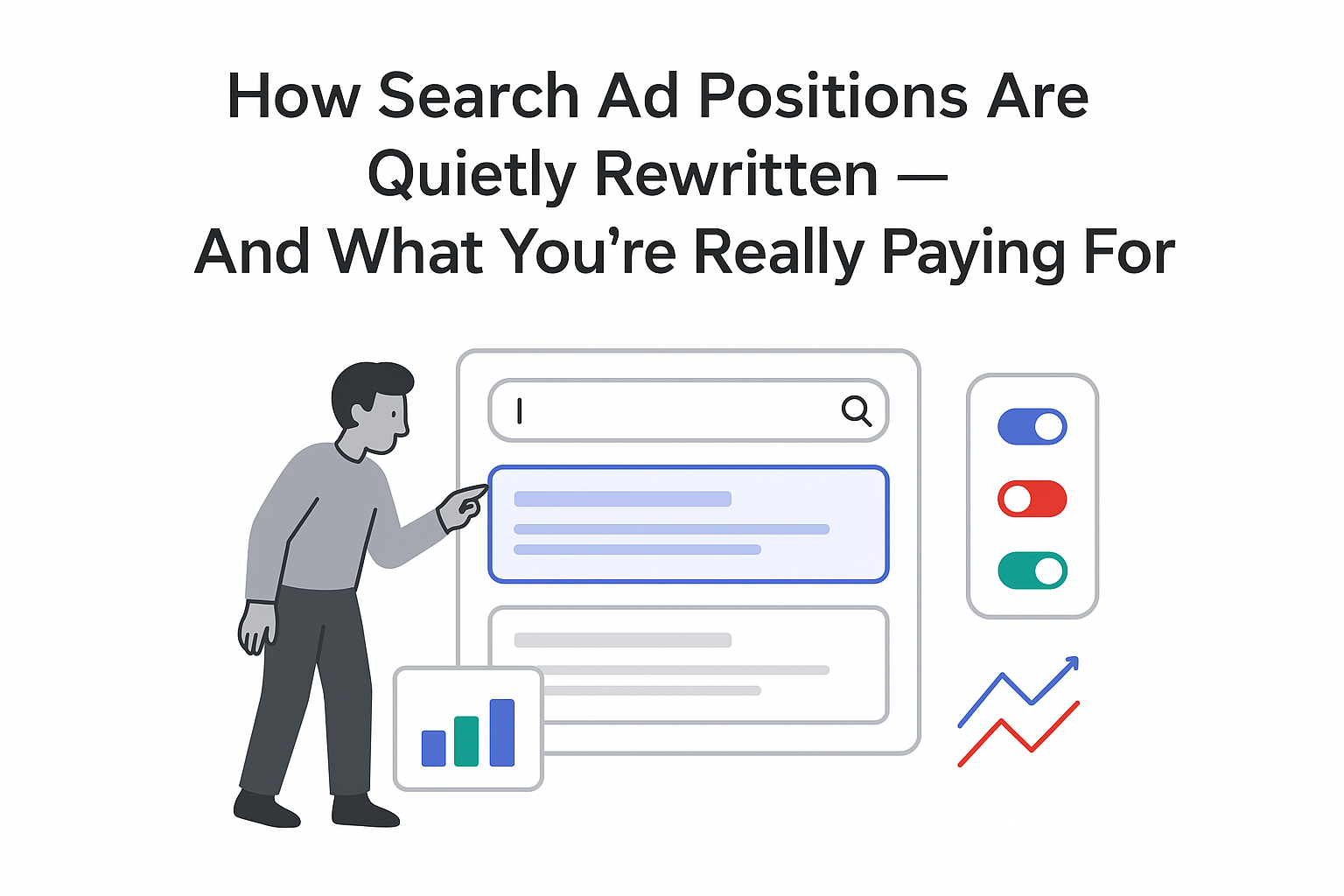
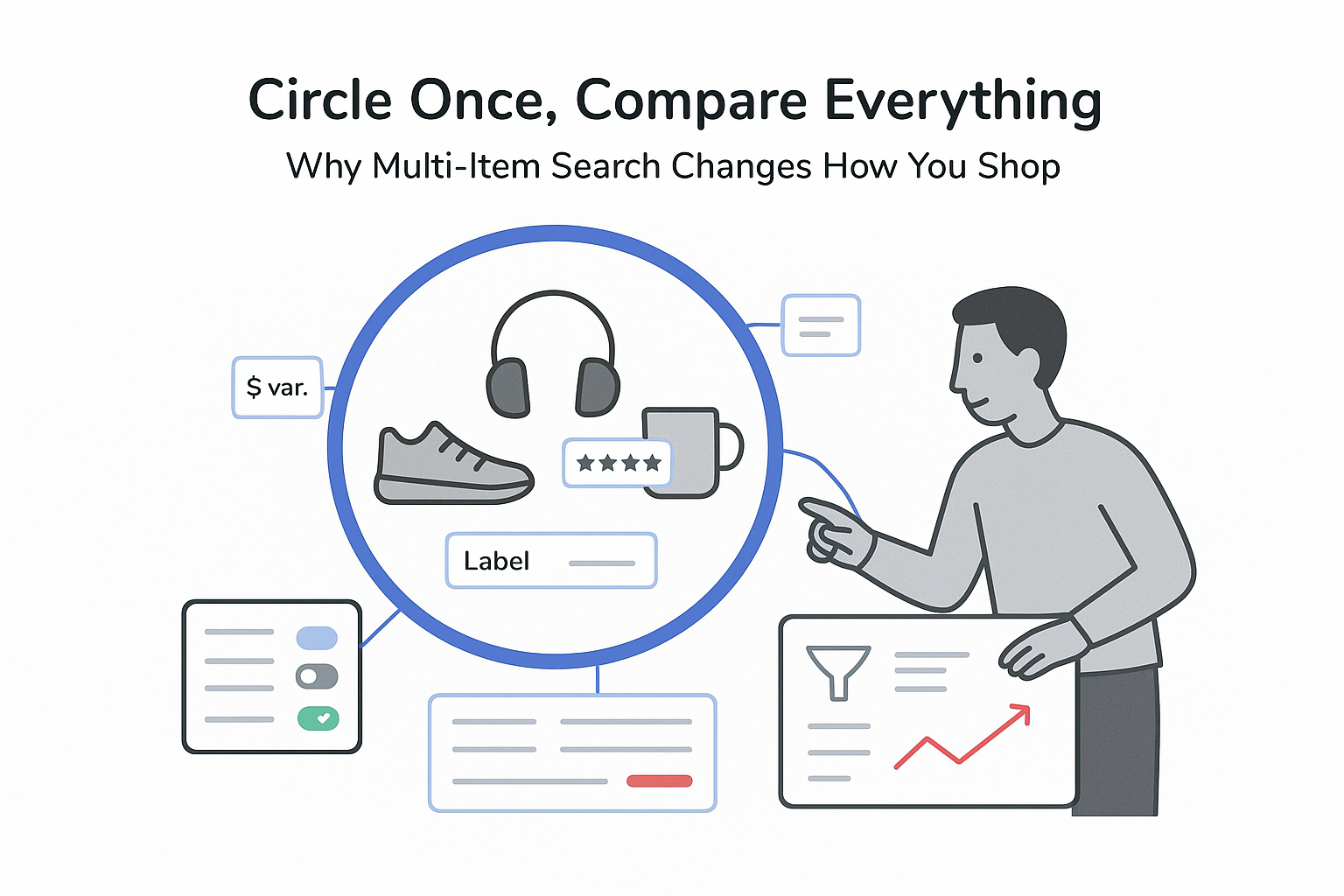
.svg)